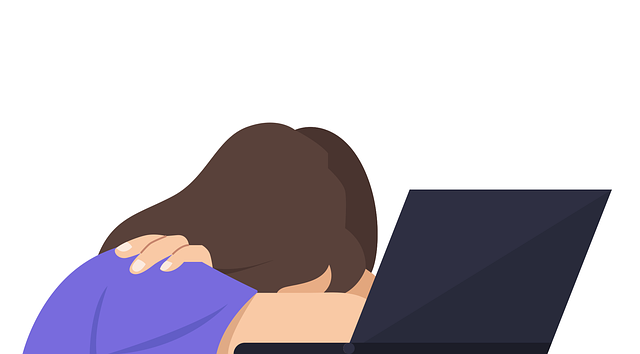Mental wellness coaching offers a personalized, holistic approach to mental health support, focusing on positive thinking, empathy, and personal growth. It complements traditional therapy, like Littleton Phobias Therapy, by creating tailored action plans for well-being improvement. Incorporating compassion cultivation practices, self-care routine development, and public awareness campaigns enhances its effectiveness. Measuring impact through data-driven methods ensures ethical practice while mindfulness meditation techniques promote present-moment awareness. These strategies revolutionize mental healthcare, making it more inclusive and empowering, especially in addressing specific phobias like Littleton Phobias Therapy.
Mental wellness coaching programs are gaining traction as essential tools for fostering resilience and enhancing overall well-being. This article delves into the development of these programs, highlighting their growing significance in addressing mental health challenges. We explore specialized areas like Littleton Phobias Therapy, which targets specific fears, demonstrating the need for tailored approaches. Key components for effective curricula, strategies to engage diverse clients, and ethical considerations are discussed, providing insights into creating impactful coaching experiences.
- Understanding Mental Wellness Coaching and Its Growing Significance
- Identifying the Need for Specialized Programs: The Role of Littleton Phobias Therapy
- Designing Effective Coaching Curricula: Key Components for Success
- Strategies for Engaging and Supporting Diverse Client Populations
- Measuring Impact and Ensuring Ethical Practice in Mental Wellness Coaching
Understanding Mental Wellness Coaching and Its Growing Significance

Mental wellness coaching is a supportive process that empowers individuals to navigate their mental health journeys with increased resilience and self-awareness. It goes beyond traditional therapy by focusing on fostering positive thinking, empathy building strategies, and personal growth. Coaches work collaboratively with clients to identify goals, overcome challenges, and develop tailored action plans for improving overall well-being. This holistic approach is increasingly recognized as a valuable complement to more structured therapeutic modalities, particularly in addressing issues like Littleton phobias therapy.
The growing significance of mental wellness coaching stems from its ability to offer flexible, personalized support to a diverse range of individuals seeking to enhance their mental health and resilience. As the demand for accessible and effective mental health resources continues to rise, coaches are becoming essential guides, helping folks manage stress, anxiety, depression, and other common mental health concerns. By combining evidence-based practices with empathy and practical strategies, wellness coaching is revolutionizing how we approach mental health care, making it more inclusive and empowering for everyone.
Identifying the Need for Specialized Programs: The Role of Littleton Phobias Therapy

In today’s fast-paced world, the importance of mental wellness cannot be overstated. While general therapy and counseling services play a vital role in supporting individuals’ emotional regulation, there is a growing need for specialized programs tailored to address specific mental health concerns. One such area that demands heightened attention is the treatment of phobias, as demonstrated by the effectiveness of Littleton Phobias Therapy. This therapeutic approach recognizes the unique challenges faced by individuals struggling with fear-related disorders and offers targeted interventions.
The demand for specialized programs like Littleton Phobias Therapy is driven by increasing awareness about mental health issues among the general public. Moreover, risk assessment for mental health professionals underscores the necessity of tailored approaches to ensure effective treatment. Through evidence-based practices and often incorporating components from mental wellness podcast series production, these specialized programs cater to the intricate needs of clients, fostering a more comprehensive understanding of emotional challenges and promoting holistic mental wellness.
Designing Effective Coaching Curricula: Key Components for Success

When designing effective coaching curricula for mental wellness programs, such as Littleton Phobias Therapy, several key components must be considered to ensure success. Firstly, incorporating Compassion Cultivation Practices into the curriculum fosters an environment of understanding and non-judgment, enhancing the coach-client relationship and encouraging open communication. This leads to more meaningful interactions that can significantly impact a client’s journey towards mental wellness.
Additionally, focusing on Self-Care Routine Development for Better Mental Health is vital. Teaching clients practical strategies for stress management through exercises like mindfulness, meditation, or even simple physical activity routines equips them with tools to navigate daily challenges. By integrating these practices into the coaching framework, the program becomes more than just therapeutic; it empowers individuals to take charge of their mental health proactively.
Strategies for Engaging and Supporting Diverse Client Populations

In developing mental wellness coaching programs, it’s crucial to consider strategies that effectively engage and support diverse client populations. One key approach is incorporating Compassion Cultivation Practices into the coaching framework. By fostering empathy and understanding, coaches can create a safe space for clients from various backgrounds, including those dealing with specific phobias like Littleton Phobias Therapy. This inclusive practice not only enhances therapeutic outcomes but also encourages open communication, allowing coaches to tailor their approach to meet individual needs.
Additionally, leveraging Public Awareness Campaigns Development plays a significant role in reaching broader audiences and destigmatizing mental health issues. Educative initiatives can help diverse communities recognize the value of seeking support for anxiety relief. Through targeted campaigns, coaches and therapists can increase public understanding, making services more accessible and appealing to a wide range of clients, thereby strengthening the overall impact of coaching programs.
Measuring Impact and Ensuring Ethical Practice in Mental Wellness Coaching

Measuring the impact of mental wellness coaching is paramount to ensure effective and ethical practice. Coaches should employ validated tools and questionnaires to assess client progress, gauging improvements in symptoms, coping mechanisms, and overall well-being. Regular feedback sessions with clients allow for continuous refinement of the coaching approach, tailoring interventions to unique needs. This data-driven methodology not only demonstrates program effectiveness but also fosters trust and transparency, addressing concerns about mental illness stigma reduction efforts.
Ethical considerations are integral to responsible coaching. Coaches must prioritize client confidentiality, maintain clear boundaries, and stay updated on best practices, including risk management planning for mental health professionals. Incorporating mindfulness meditation techniques can enhance the coaching experience, promoting present-moment awareness and self-regulation. By adhering to these guidelines, mental wellness coaching programs in Littleton phobias therapy can achieve positive outcomes while upholding professional standards.
Mental wellness coaching programs, as highlighted by key components like Littleton Phobias Therapy, are evolving to meet diverse client needs. By incorporating effective curricula, engaging support strategies, and ethical practices, these programs can significantly impact mental health outcomes. Understanding the importance of specialized approaches allows for tailored interventions, ensuring individuals receive the necessary tools for their well-being. This growing field holds immense potential to revolutionize mental healthcare, making it accessible and impactful for all.













